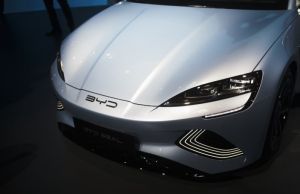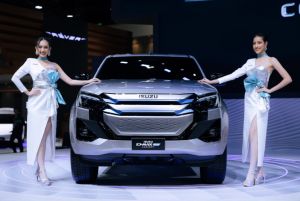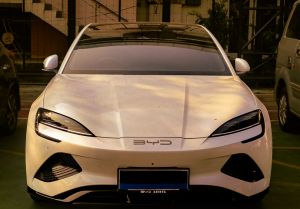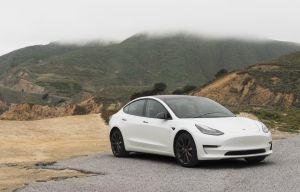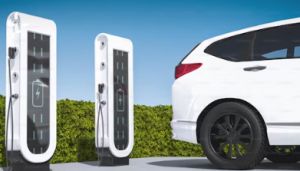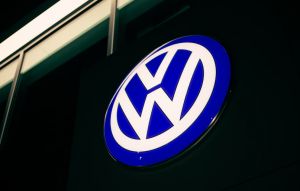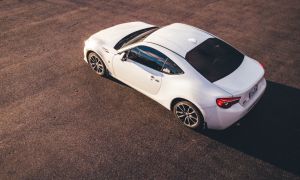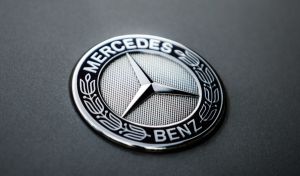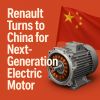Test Owner
R&D Engineers with Doctoral Degrees in China: Driving Innovation and Technological Leadership
China is accelerating its emergence as a global technological powerhouse, largely driven by an ambitious surge in research and development (R&D) capacity. At the heart of this transformation is a rapidly expanding class of STEM PhD holders, many of whom are shaping the future of automotive innovation and other advanced industries.
While China’s progress inspires admiration, it also raises questions among international observers — particularly in the United States — about the implications for global technological leadership, economic security, and national competitiveness.
A Surge in STEM PhDs: Quantity with Rising Quality
According to a 2021 report by Georgetown University’s Center for Security and Emerging Technology (CSET), China is expected to produce over 77,000 STEM PhDs annually by 2025, nearly twice the number of the U.S., and more than triple when excluding U.S. international students. This rapid expansion is the product of deliberate national strategy: since the early 2000s, China has opened over 1,300 new PhD programs and nearly doubled its higher education budget between 2012 and 2021.
Although skeptics argue that "more" does not always mean "better," the quality of Chinese doctoral education is also on the rise, particularly within its top-tier “Double First Class” universities. These institutions now produce nearly half of the country’s PhDs and are key to China’s global research contributions, particularly in AI, materials science, and engineering.
The Automotive Sector: A National Priority
R&D engineers with doctoral degrees are in exceptionally high demand in China’s automotive sector, which is undergoing a massive transformation fueled by government policy and market pressure. Areas of urgent recruitment include:
Autonomous Driving & AI Models
Electric Drive & Battery Management Systems
Intelligent Cockpits & Infotainment
Crash Analysis, EE System Engineering
Hydrogen Fuel Cell and Advanced Lighting
These engineers are not just developing technologies — they are leading them. PhD holders often serve as principal investigators, system architects, and innovation leaders, translating cutting-edge science into commercial products for OEMs and Tier 1 suppliers.
Exceptional Incentives and Global Opportunities
To attract global experts, Chinese companies and research parks are offering one- to five-year contracts, full relocation support, and salaries well above global averages, particularly for those with OEM or Tier 1 experience. The financial packages often include housing, healthcare, education for children, and bonuses tied to project success.
For foreign STEM PhDs, China represents both opportunity and challenge — a dynamic environment where R&D teams are large, well-funded, and increasingly competitive. Many roles are open to international candidates, especially in innovation hubs like Shanghai, Shenzhen, Guangzhou, and Wuhan.
A Talent Race with Global Consequences
As Yojana Sharma noted in University World News, the U.S. is now reassessing its position in the global "war for talent." Historically, U.S. dominance in research has relied on its ability to attract and retain foreign PhD talent, especially from Asia. But with rising concerns over immigration policy, national security, and foreign student restrictions, that edge may be eroding.
Meanwhile, China’s self-sufficiency strategy continues to bear fruit. The majority of Chinese STEM PhDs are domestic nationals trained at home, many of whom now choose to stay and work in China rather than seek opportunities abroad. With the number of top-tier Chinese PhDs rising — especially in engineering and AI — the foundation for long-term innovation leadership is being laid.
Conclusion: Talent Is the True Technology
While the U.S.–China rivalry in technology often centers on hardware or patents, the real race is for human capital — the minds capable of building the future. PhD-level R&D engineers are the vanguard of this movement. In China, they are empowered with resources, respected as thought leaders, and tasked with executing one of the most ambitious national innovation agendas in modern history.
For the world, this signals a shift. For R&D professionals, it presents a unique window of opportunity. If you are a doctorate-level engineer with expertise in cutting-edge automotive technologies and are ready to take your career to the next level in China, we invite you to apply by submitting your CV to our current job offerings: https://www.icautochina.com/job-search/19-doctoral-contract-jobs-china-250k-350k-pa/technical-rd-consultant/shanghai/job
China’s electric vehicle giant BYD plans to expand its plug-in hybrid offerings in Germany with the launch of two new models later this year, according to Maria Grazia Davino, the company’s regional chief for Germany and several Central European countries.
Speaking at the Reuters Automotive Conference in Stuttgart on Tuesday, Davino highlighted the need to diversify BYD’s product line to meet European consumer preferences. “Not everyone is ready for a fully electric vehicle,” she said. “We need alternative solutions to win over customers. Every month, we evaluate the best balance between customer demand and effective distribution.”
BYD, which overtook Tesla last year to become the world’s largest EV manufacturer, is currently revamping its European strategy after initial challenges—including limited dealership coverage, insufficient local expertise, and a product portfolio lacking plug-in hybrids—hindered sales.
To support this shift, BYD is establishing national sales companies across Europe. These local units will manage distribution, customer service, and region-specific marketing. “This localisation is a major investment,” said Davino, a former Stellantis executive. “You have to build everything from the ground up. It will take time.”
Currently, BYD offers just one plug-in hybrid in Europe—the Seal DM-i—which combines a battery-powered drivetrain with a small gasoline engine that recharges the battery and extends range. “Going forward, we will build around two core pillars: fully electric vehicles and our DM-i hybrid technology,” Davino explained.
Strategic Pivot Amid Market Pressures
Facing an overcrowded EV market and a price war in China, Chinese automakers like BYD are increasingly targeting European growth. To bypass tariffs on Chinese-made battery-electric vehicles, companies are pushing hybrid imports and fast-tracking plans to establish local assembly plants.
BYD’s European reset appears to be gaining traction. In the first quarter of 2025, its regional sales rose to over 37,000 vehicles, up from just 8,500 in the same period last year. In Germany, where sales dipped to under 2,900 units in 2024 from 4,139 the year before, the company is already showing signs of recovery. Between January and March 2025, over 1,200 new BYD vehicles were registered, according to Germany’s Federal Motor Transport Authority (KBA).
In addition to the two new plug-in hybrid models, BYD will also introduce the Dolphin Surf, an entry-level EV, to European markets this year. The company is further expanding its luxury brand, Denza, which debuted in Milan last month. More details are expected at BYD’s investor day on May 27.
“We’re committed to doing things right—not only in Germany, but across Europe,” Davino said. “We’re known for our speed, but we also want to ensure we grow in a sustainable and strategic way.”
Not too long ago, the Beijing and Shanghai Auto Shows were seen mostly as curiosities by Western car fans — a place to spot Chinese-made knockoffs of Land Rovers and Minis. Fast-forward to today, and no one’s laughing anymore. China has become an electric vehicle (EV) powerhouse, pushing the world's biggest car brands to rethink everything.
This year’s Shanghai Auto Show was a bit quieter, but it still delivered some major reveals that could make waves around the world. Here's a look at five of the most exciting new models:
1. MG Cyber X
MG turned heads with its bold new concept, the Cyber X. Following the buzz around its electric sports car, the Cyberster, MG is showing it can do more than budget-friendly EVs.
The Cyber X has the chunky stance of a Land Rover Defender, finished in a dramatic black paint job, and features a giant front light bar topped by retro pop-up headlights — a fun nod to the 1980s.
It’s only a concept for now, but MG’s design chief says it wouldn’t take much to bring it into production. And knowing how fast China moves, it probably won’t be long before it’s a reality.
2. Nissan Frontier Pro PHEV
Pick-up trucks have taken a hit lately, especially in markets with stricter emissions rules. But Nissan might be ready to bring them back into the spotlight with the Frontier Pro PHEV.
This plug-in hybrid truck packs a 33kWh battery and a 1.5-liter turbo engine. It can go about 83 miles on electric power alone and has a total range over 660 miles — perfect for long trips and heavy towing.
While it's launching in China and North America first, it could signal a global comeback for Nissan’s pick-up lineup.
3. Mercedes-Benz Vision V
In China, luxury vans are a big deal — and Mercedes-Benz delivered with the jaw-dropping Vision V concept.
Imagine riding in a van with a 65-inch movie screen, 42 speakers, and even projectors that turn the windows into gaming or entertainment hubs. This electric van concept isn’t just showing off; it previews the future of the all-new electric V-Class.
If the Vision V goes into production, it could redefine luxury travel for busy executives — or anyone who wants an IMAX experience on wheels.
4. Mazda EZ-60
Mazda, known for its quirky engineering (remember the rotary engine?), has been a bit slow to jump on the EV train. But that’s changing.
The EZ-60 is Mazda’s new electric SUV, designed to take on the hugely popular mid-size crossover market. It’s expected to offer about 370 miles on a full charge, with a plug-in hybrid version that could stretch beyond 620 miles.
It’s a big step for Mazda — and it could help the brand finally make its mark in the EV world.
5. Lexus ES 350e and 300h
Lexus is stepping up its game with an electrified version of its beloved ES sedan.
The new model will come in two flavors: the ES 300h hybrid and the all-electric ES 350e. Inside, there’s a sleek new 12.3-inch touchscreen and an upgraded infotainment system called Arene, aiming to match the tech sophistication of Chinese rivals.
With a projected electric range of 425 miles, the new Lexus ES could be a serious competitor to models from Huawei, Zeekr, and even BMW — and it’s confirmed to be sold globally.
Final Thoughts
China's grip on the EV market is only getting tighter, and the 2025 Shanghai Auto Show proves that the future of electric cars is being shaped in a big way by Chinese brands — and by international carmakers racing to keep up.
BYD’s high-end electric vehicle brand, Denza, is officially entering the European market this April. The brand will make its debut at Brera Design Week 2025 in Milan, running from April 7 to 13, where it will serve as the main sponsor of Fuorisalone 2025. “We’re bringing the future of premium electric mobility to Europe. Stay inspired, stay ahead,” Denza announced on social media.
From Struggles to Success: Denza’s Transformation
Originally established in 2011 as a joint venture between BYD and Mercedes-Benz, Denza struggled to gain traction in its early years. The partnership, with each company holding a 50% stake and a registered capital of 7.76 billion yuan (about $1 billion), failed to achieve significant sales. By December 2021, Mercedes-Benz exited the joint venture, and BYD took a controlling 90% stake, later acquiring full ownership in 2024.
With BYD at the helm, Denza was repositioned as a premium EV brand, leading to a rapid expansion. The company launched five new models: the D9 minivan, N7 and N8 SUVs, Z9 sedan, and Z9 GT estate. In 2024 alone, Denza sold 125,674 vehicles in China and began exporting to Europe.
A New Strategy for the European Market
Currently, BYD operates three sub-brands: Denza, Fang Cheng Bao, and Yangwang. However, for Europe, BYD plans to consolidate its luxury offerings under the Denza name. As part of this strategy, the Fang Cheng Bao Bao 5 SUV will be introduced to the European market under the Denza brand.
One of the key models confirmed for Europe is the Denza Z9 GT estate, positioned as a direct competitor to the Porsche Panamera. Designed by former Audi chief designer Wolfgang Egger, the Z9 GT is priced at 334,800 yuan ($46,100) for the plug-in hybrid version and 354,800 yuan ($48,800) for the all-electric model in China.
Denza’s Arrival: A Game-Changer for the EV Market?
With its official European launch just around the corner, Denza aims to disrupt the premium EV market with its cutting-edge design, technology, and competitive pricing. As BYD continues its global expansion, Denza’s arrival in Europe could mark a significant shift in the luxury electric vehicle landscape.
Tesla has officially joined BMW and major Chinese automakers in a legal battle against EU-imposed tariffs on electric vehicles imported from China. The lawsuit, filed in the General Court of the European Union (CJEU), signals an escalating dispute between Tesla CEO Elon Musk and European regulators over trade policies affecting the fast-growing EV market.
The legal challenge, confirmed on Jan. 27, follows the European Commission’s decision to impose tariffs on Chinese-made EVs in October 2024 after an anti-subsidy investigation. Despite Tesla receiving the lowest tariff rate at 7.8%, the company is pushing back against the broader policy, which impacts not only Chinese automakers but also European brands manufacturing in China, such as BMW.
Why Did the EU Impose Tariffs on Chinese EVs?
The European Commission launched an investigation into Chinese EV manufacturers, alleging that they benefited from unfair government subsidies. These included:
- Soft loans from Chinese state banks
- Favorable land deals for factory development
- Subsidies for suppliers to lower production costs
These advantages, according to EU officials, allowed Chinese-made EVs to be sold at artificially low prices, making it difficult for European automakers to compete.
As a result, the EU introduced additional tariffs ranging from 7.8% for Tesla to 35.3% for other Chinese automakers, on top of the existing 10% import tariff applied to foreign carmakers.
Tesla’s Stake in the Dispute
Tesla’s Shanghai Gigafactory is a key production hub for its Model 3, which is exported to Europe. In 2023, electric vehicles made in China accounted for 20% of all EV sales in the EU, with Tesla alone making up 28% of those imports, according to the European Federation for Transport and Environment.
While Tesla’s tariff rate is lower than its competitors, the company argues that the import duties create unnecessary trade barriers and increase costs for European consumers. BMW, BYD, Geely, SAIC, and the China Chamber of Commerce for Import and Export of Machinery and Electronic Products (CCCME) have also filed lawsuits against the EU’s decision.
How Tesla and Automakers Are Adapting
In response to the tariffs, Tesla has adjusted its production and supply strategy:
- Berlin Gigafactory Focus: Tesla is ramping up local production of Model Y in Germany to reduce reliance on Chinese imports.
- Shanghai Exports Shift: Tesla continues to export Model 3s from its Shanghai factory, though higher tariffs could impact pricing and demand.
Other automakers are also reconsidering their supply chains. BMW, which produces a significant number of vehicles in China, may need to adjust its pricing strategy for the European market. Chinese EV makers, like BYD and Geely, are exploring options to expand production in Europe to avoid tariffs altogether.
What’s Next?
Tesla’s lawsuit is now before the General Court of the European Union, the second-highest court in the EU. The legal proceedings are expected to last around 18 months, after which the ruling can be appealed to the European Court of Justice.
The European Commission has defended its decision, maintaining that the tariffs are necessary to protect European manufacturers from unfair competition. A spokesperson for the Commission stated that the EU is prepared to argue its case in court.
This legal battle has far-reaching implications for Tesla, Chinese automakers, and global trade relations. If Tesla and other challengers succeed, it could force Brussels to reconsider its tariff policies, potentially reshaping the EV market in Europe. However, if the EU upholds the tariffs, automakers may have to accelerate investment in European production facilities or explore alternative markets.
With rising tensions between the EU, China, and the U.S., the outcome of this case could be a defining moment in the global EV industry.
Chinese car manufacturers are poised to make a notable impact on the UK car market in the coming years, offering a wave of more affordable electric vehicles (EVs) that could challenge established European brands.
According to the 2023 FN50 leasing companies’ survey, industry leaders were optimistic about these new entrants gaining market share from higher-priced European rivals.
However, this outlook could shift dramatically if the UK Government imposes stringent import tariffs on Chinese-built vehicles—a measure already adopted by the United States and European Union to protect legacy carmakers in their regions.
EU Leads the Way with Tariffs
The European Commission’s investigation revealed that Chinese car brands have benefited from unfair government subsidies in Beijing, enabling them to keep prices artificially low. As a result, the EU has implemented tariffs of up to 45% on new EVs imported from China for the next five years.
China, which has been targeting an aggressive expansion into the European market to bolster its growing automotive sector, may need to rethink its strategy if these tariffs stifle sales. One possible outcome could see China redirect its focus toward the UK market, especially since the UK Government has yet to clarify its stance on similar tariffs.
In October, British trade minister Jonathan Reynolds stated that no complaints had been raised by UK businesses regarding Chinese EV imports, suggesting the UK was not immediately following the EU or US example.
Impact on the UK Fleet Market
The arrival of Chinese carmakers in the UK is expected to significantly influence the EV sector, according to Ian Turner, chief sales officer at Alphabet.
“The entrance of new Chinese OEMs into the UK market will undoubtedly reshape the fleet landscape, particularly in the EV segment,” he says. “Their focus on affordability is likely to intensify competition and disrupt traditional market dynamics.”
Turner highlights the potential benefits of this competition: “Chinese manufacturers excel at producing cost-effective vehicles, which could drive down prices and make EVs more accessible to a broader audience. This affordability might accelerate the transition to electrification, benefiting corporate fleets and retail customers alike.”
However, he also acknowledges the challenges: “The possible introduction of import tariffs could alter cost structures and impact fleet decision-making, requiring careful planning around pricing strategies.”
Strategic Shifts by Chinese Manufacturers
In response to EU tariffs, some Chinese carmakers are already adapting their business strategies. BYD, for example, has announced plans to establish a European production facility to mitigate tariff costs.
Additionally, Chinese OEMs have been forging strategic partnerships with European carmakers, complicating how tariffs might apply. Stellantis, for instance, has invested £1.3 billion to acquire a 20% stake in Leapmotor and launched Leapmotor International, a joint venture focused on exporting, selling, and manufacturing Leapmotor products outside China, starting with Europe.
Aftersales Support Remains a Concern
Despite the growing interest in Chinese EVs, UK leasing companies remain wary about the long-term reliability of these brands, particularly regarding aftersales services.
Rory Mackinnon, Holman’s commercial director, explains: “The entry of Chinese OEMs broadens fleet options, especially in the EV space. However, many of these manufacturers lack robust aftersales networks or reliable parts supply. These factors must be carefully considered when evaluating vehicle acquisitions.”
Concerns are heightened by the experience with Fisker, an American newcomer that entered the UK market with promise but filed for bankruptcy in 2024. With limited aftersales infrastructure in place, Fisker owners now face significant maintenance challenges and no warranty support—serving as a cautionary tale for fleets considering less-established brands.
SAIC and Volkswagen Extend Joint Venture to 2040
On the 40th anniversary of SAIC Volkswagen, SAIC Motor and the Volkswagen Group signed an agreement in Shanghai to extend their joint venture (JV) until 2040. This marks a significant milestone in their long-term partnership, highlighting their commitment to the Chinese market, the Volkswagen Group confirmed on Thursday.
Strengthening Collaboration Amid Challenges
The extended agreement reflects the growing trend of China-European joint ventures, despite challenges such as the European Union’s (EU) protectionist tariffs on Chinese electric vehicles (EVs). Experts believe this partnership showcases the potential for win-win collaboration between China and Europe in the evolving auto industry.
Ralf Brandstätter, a Volkswagen AG Board Member for China, emphasized the strategic importance of the partnership. “We are now raising our collaboration with SAIC to the next level, focusing on product innovation, production efficiency, and decarbonization. By 2030, SAIC Volkswagen will launch 18 new models, with 15 exclusively developed for the Chinese market,” Brandstätter said.
Brandstätter also reaffirmed China’s role as a cornerstone of Volkswagen’s global strategy. He noted the company’s commitment to increasing investments in the region, in partnership with Chinese collaborators.
Broader China-European Automotive Collaborations
Despite the EU’s tariff measures on Chinese EVs, partnerships between Chinese and European automakers are flourishing. For example:
- Chery Automobile and Spain’s Ebro-EV Motors launched their JV in Barcelona, celebrating the production of the s700 SUV. Signed in April, their agreement aims to create 1,250 jobs and produce 150,000 vehicles annually by 2029, according to Xinhua News Agency.
- Leapmotor International, a JV between Chinese automaker Leapmotor and global auto giant Stellantis, began European sales operations in September. The JV plans to expand into markets in the Middle East, Africa, Asia-Pacific, and South America later this year.
These collaborations highlight the complementary strengths of Chinese and European enterprises as they navigate an evolving market and expand product offerings to meet consumer demands.
Market Challenges and Opportunities
Zhou Mi, a senior research fellow at the Chinese Academy of International Trade and Economic Cooperation, noted that such collaborations align with mutual interests and are driven by market dynamics. However, the EU’s decision to impose extra tariffs on China-made EVs could harm global supply chain cooperation.
Jian Junbo, Deputy Director of the Center for China-Europe Relations at Fudan University, warned that these tariffs might:
- Strain trade relationships between China and the EU.
- Hinder the global EV industry’s technological innovation.
- Slow down EV adoption in the EU, potentially weakening European automakers’ competitive edge.
While the EU announced the tariffs on October 29, it also indicated plans to continue price commitment consultations with China, Xinhua reported.
The extension of SAIC Volkswagen’s JV to 2040 reflects the enduring partnership between Chinese and European automakers, despite political and economic challenges. As collaborations like Chery-Ebro and Leapmotor-Stellantis demonstrate, shared strengths and complementary goals continue to drive the global auto industry forward, ensuring innovation and progress in a competitive market.
China has called on its auto manufacturers to pause significant investments in European Union (EU) countries that support the recent imposition of tariffs on Chinese electric vehicles (EVs), according to sources cited by Reuters.
The directive comes in response to new EU tariffs, which can reach up to 45.3%, following a comprehensive year-long investigation. At an October 10 meeting with the Ministry of Commerce, major Chinese automakers such as BYD, SAIC, and Geely were advised to suspend major investment activities, including plans for building factories, in countries that align with the tariff policies.
This strategic measure by the Chinese government aims to strengthen its position in ongoing discussions with the EU about alternative solutions to the tariff issue. Beijing hopes to maintain the flow of EV exports to Europe, a crucial market that accounted for over 40% of China’s EV shipments in 2023. With existing 100% tariffs on Chinese-made EVs in the US and Canada, a significant drop in European exports could exacerbate domestic overproduction problems faced by Chinese automakers.
While nations such as Italy and France have expressed interest in Chinese auto investments, they have also raised concerns about the influx of affordable Chinese EVs and their impact on European automakers.
State-owned SAIC is currently exploring potential sites for an EV manufacturing plant in Europe and is preparing to launch a parts distribution center in France. Simultaneously, Italy is in discussions with automakers such as Chery and Dongfeng Motors for potential investments. BYD, another key player, is constructing a facility in Hungary and considering relocating its European headquarters there to cut costs.
This week, EU and Chinese officials have agreed to continue technical discussions to find alternative solutions to the EV tariffs. Despite eight rounds of dialogue between the European Commission and Chinese officials, “significant remaining gaps” in their positions persist.
Mercedes-Benz Group's CEO, Ola Källenius, is in China this week, seeking to expand local technology partnerships that could help reverse the company's declining sales in its most important market. Källenius, who has made several trips to China this year, is joined by other members of Mercedes’ management and supervisory board, according to sources familiar with the matter. The key objective of the visit is to make Mercedes' new electric vehicles (EVs) more appealing to Chinese consumers.
Targeting the Next-Generation Electric Vehicle Launch in 2025
According to sources, the new partnerships aim to enhance Mercedes' next-generation EVs, particularly for the 2025 launch of its battery-only CLA, the first model based on the company's new electric vehicle platform. This launch is seen as critical in the battle to regain market share from Chinese automakers, which have been outperforming international brands in the EV segment. The focus is on collaborating with local companies that provide key in-car technologies, such as mapping and entertainment systems, to tailor the CLA and other models specifically to Chinese consumer preferences.
A Mercedes representative in China confirmed that staff from headquarters would be visiting but declined to provide additional details.
Navigating Challenges in China’s Competitive Market
China remains Mercedes-Benz’s largest market, contributing 36% of its global sales in 2023. However, the company is under increasing pressure to regain momentum amid a stagnant Chinese economy and intensified competition from domestic automakers. Last week, Mercedes followed rival BMW Group in cutting its full-year profit outlook, citing weaker demand for luxury cars in China.
To counter these challenges, Källenius has launched a sales offensive with new products and localized innovations. Last month, Mercedes-Benz announced a collaboration with ByteDance Ltd., the parent company of TikTok, to integrate generative AI applications into its in-car systems for the Chinese market, enhancing the appeal of its vehicles with cutting-edge technology.
Strengthening Strategic Partnerships
Källenius may also meet with Li Shufu, Mercedes’ top shareholder and the founder of Zhejiang Geely Holding Group Co., during his visit. Geely is a crucial partner for Mercedes in China. Meanwhile, Mercedes-Benz continues to deepen its ties with other local partners. In his previous visit, Källenius announced a joint investment of 14 billion yuan ($1.99 billion) with long-time partner BAIC Motor Corp. to produce electric and light-commercial vehicles specifically designed for Chinese consumers.
These models will include an extended-wheelbase version of the electric CLA, a GLE crossover, and a new luxury electric multi-purpose vehicle. These China-focused offerings are a crucial part of Mercedes’ strategy to compete more effectively with local automakers who have been dominating the EV market with competitive pricing and faster innovation cycles.
A Broader Trend of Localization
Mercedes-Benz isn't the only German automaker accelerating its localization efforts in China. Volkswagen Group has also intensified its focus on faster production and development in China, optimizing costs by leaning heavily on local supply chains. VW has partnered with Chinese EV startup Xpeng Inc. to roll out new products in China, while also investing in new joint ventures with local suppliers like Horizon Robotics, reinforcing its commitment to staying competitive in the world’s largest EV market.
As competition heats up, these localization strategies are essential for traditional carmakers to retain a foothold and drive future growth in China’s rapidly evolving automotive industry.
BYD Acquires German Importer Amid Lagging Sales
BYD is taking control of its German distributor, Hedin Electric Mobility, as the automaker's leadership grows increasingly frustrated with sluggish sales in Europe's largest market. Germany is crucial to BYD's strategy of capturing a 5% share of the European auto market in the midterm. The company has set a goal of selling 120,000 cars in Germany by 2026, but as of July, it had only registered 1,432 vehicles, representing just 0.1% of the market, according to the KBA motor transport authority.
Despite a significant marketing boost as the automotive sponsor for the European soccer championship held in Germany this summer, BYD’s sales in the country have remained disappointingly low.
Hedin Electric Mobility has been BYD's general importer in Germany since 2022, supplying cars and parts to around 30 BYD dealerships nationwide. By acquiring Hedin's business, BYD aims to streamline its operations, allowing it to sell directly to dealers and gain more control over pricing and vehicle availability.
Although BYD is taking over the distribution, Hedin's German dealerships will continue to operate as BYD partners. Additionally, Hedin will maintain its role as BYD's importer and distributor in Sweden. The financial terms of the deal, which is pending regulatory approval, have not been disclosed.
This move comes as Chinese EV manufacturers, including BYD and SAIC's MG brand, face challenges expanding in Europe. These include weakening demand and new tariffs on EVs imported from China. In July, registrations of Chinese EVs in Europe dropped, with Chinese brands capturing just 9.9% of the overall EV market.


